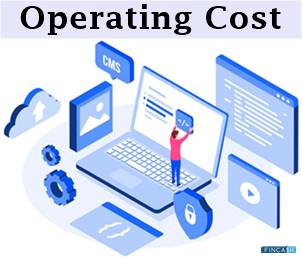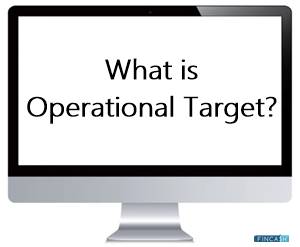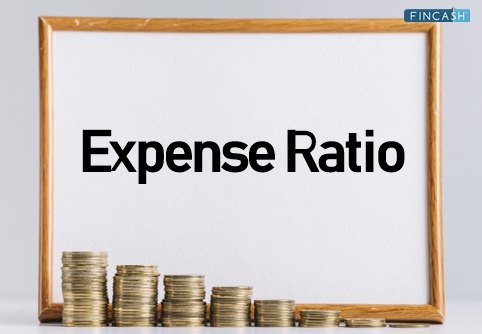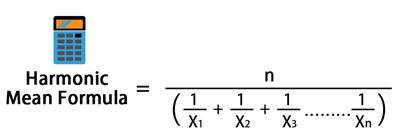Operating Expense Meaning
An operating expense, abbreviated as OPEX, is a cost incurred by a company as part of its regular operations. One of the most common challenges faced by the management is identifying how to cut operating costs without compromising a company's ability to compete.
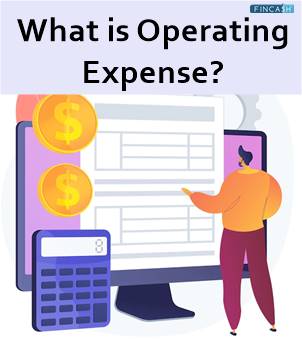
For most firms, operating expenses are necessary and inevitable. Some businesses have successfully lowered operating costs to obtain a competitive advantage and improve profits. However, cutting operating costs might put the integrity and quality of operations at risk. While finding the correct balance might be tough, it can pay off handsomely.
Categories of Operating Expense
There are two types of expenses that organisations must pay, fixed and variable expenses. Both play critical roles in the day-to-day operations of any business. However, there are a few fundamental differences between them.
Fixed Expenses
Any costs that stay constant and independent of output are fixed expenses. These are costs that a corporation cannot avoid since they arise regularly. These expenses are rarely related to production and are rarely variable, making them reasonably predictable. insurance, property Taxes, and salary are examples of fixed costs.
Variable Expenses
They alter in response to the production, so costs rise as a company produces more. When production volumes fall, the opposite is true. Economic and financial developments and any corporate restructuring, altering a company's dynamic, might impact this. This category includes expenses like utility bills.
Talk to our investment specialist
Operating Expenses Include
Operating expenses comprise the following:
- Rent
- Equipment
- Inventory costs
- Marketing
- payroll
- Insurance
- Step costs
- Funds devoted to R&D
Types of Operating Expenses
Compensation-Related Expenses
- Non-production employees' compensation and other Payroll tax expenses
- Commissions on sales
- Non-production employees' benefits
- Contributions to non-production employees' pension plans
Office-Related Expenses
- Accounting expenses
- Fixed Asset depreciation assigned to non-productional areas
- Insurance charges
- Legal fees
- Cost for office supplies
- Property taxes
- Rent for non-productional facilities
- Repair for non-productional facilities
- Utility expenses
Sales and Marketing-Related Expenses
- Advertising charges
- Direct mailing charges
- Entertainment charges
- Sales material costs (like brochures)
- Travel expenses
Operating Expenses Formula
You can compute your organisation's Operating Expense Ratio (OER) by knowing your Operating Expenses (OPEX). The OER allows you to compare your firm to others in your Industry by directly comparing your expenses to your Income.
( COGS + OPEX ) / Revenues = OER
Here, COGS = Cost of Goods Sold
Operating Expenses Examples
For some companies, here is the income statement for a year:
- Revenue = Rs. 125 million
- COGS = Rs. 125 million
- SG&A = Rs. 20 million
- Research & Development= Rs. 10 million
Here, SG&A refers to Selling, General & Administrative
Based on the above data, gross profit is Rs. 65 million, and operating income is Rs. 35 million, as,
Gross Profit = Rs. 125 million – Rs. 60 million = Rs. 65 million
Operating Income = Rs. 65 million – Rs. 20 million – Rs. 10 million = Rs. 35 million
The company's overall operating expenses are Rs. 30 million in SG&A and R&D.
Non-Operating Expenses
A non-operating expense has nothing to do with the company's primary operations. Interest charges or other borrowing costs and losses on asset disposition are the most typical types of non-operating expenses. Accountants may ignore the effects of finance and other irrelevant concerns when examining the performance of a corporation by excluding non-operating expenses.
Non-Operating Expenses Examples
Non-operating expenses are the ones incurred by a company that is unrelated to its core activities. Non-operating expenses include the following:
- Amortisation
- Depreciation
- Interest costs
- Obsolete Inventory costs
- Settlements of lawsuits
- Losses from asset sales
- Restructuring costs
It's useful to isolate these elements from the company's results of operations because they aren't part of the company's main activities and occur infrequently.
Is Depreciation an Operating Expense?
Depreciation is treated like any other company expense on the income statement. The cost is recorded in the income statement's operational expenses section if the asset is being used for production.
Conclusion
To determine whether the business is successful, you must have a comprehensive view of COGS, OPEX, and non-OPEX. There is not any single hard and fast rule for the appropriate Operating Cost-to-revenue ratio. It will vary based on the industry, business model, and maturity of the company. However, keeping operational costs low and selling much more of your goods and services generates greater free cash flow for your company, which is positive.
All efforts have been made to ensure the information provided here is accurate. However, no guarantees are made regarding correctness of data. Please verify with scheme information document before making any investment.
